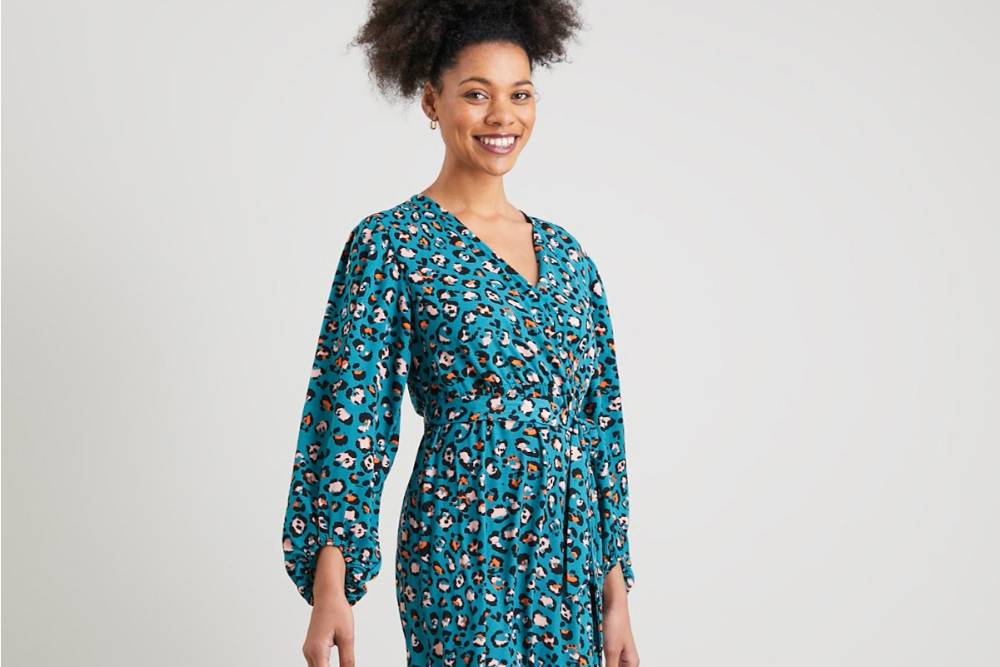
Sainsbury's is a British retailer founded in 1869 in Holborn, London, United Kingdom, by John James Sainsbury. The retail company creates affordable fashion for men, women, and children.
Sainsbury's makes clothing, accessories, shoes, swimwear, homeware, beauty, jewelry, and watches. Sainsbury's is the second largest supermarket chain in the UK and owns many brands, such as Argos, Tu Clothing, Habitat, and more.
Sainsbury's operates over 600 supermarkets and over 800 convenience stores. It has over 189,000 employees in stores, factories, logistics, brands, and subsidiaries.
Sainsbury's has made environmental and social commitments and sustainability goals in its Plan for Better around three key pillars, Better for you, Better for the planet, and Better for everyone.
Panaprium is independent and reader supported. If you buy something through our link, we may earn a commission. If you can, please support us on a monthly basis. It takes less than a minute to set up, and you will be making a big impact every single month. Thank you!
Sustainability Rating: 4/10
Rating FAQ
Category: Clothing, accessories, shoes, bags, jewelry
For: Women, men, children
Type: Basics, denim, dresses, knitwear, activewear, underwear, loungewear, swimwear, outerwear, workwear, nightwear, maternity, boots, flats, heels, sneakers
Style: Casual
Quality: Low
Prices: $
Sizes: petite, XS-2XL, 6-20 (US), 8-22 (UK), 36-50 (EU), 8-22 (AU), plus
Fabrics: Cotton, linen, hemp, ramie, jute, lyocell, modal, viscose, cupro, acetate, polyester, nylon, spandex, polyethylene, polypropylene, acrylic, neoprene, polyurethane, rubber, leather, wool, down
100% Organic: No
100% Vegan: No
Ethical & Fair: No
Recycling: Yes
Producing countries: Albania, Bangladesh, Cambodia, China, Italy, India, Morocco, Pakistan, Romania, Sri Lanka, Turkey, Vietnam
Certifications: GOTS, BCI, FSC, RDS, Oeko-Tex, Sedex, SMETA
Sustainability Practices
Sainsbury's takes wide-ranging measures to protect biodiversity, reduce its consumption of water, energy, and other resources, avoid waste, and combat climate change.
It wants to be better and more efficient by looking at every aspect of its value chain to ensure the healthy functioning of our planet. However, the majority of its business remains detrimental to the environment.
Sainsbury's only uses a tiny proportion of organic materials such as organic cotton and hemp or recycled materials such as recycled cotton, recycled polyester, and regenerated nylon.
Most of the fabrics it uses are either natural without relevant certifications, such as regular cotton or linen, or synthetic petroleum-based fibers such as polyester, nylon, acrylic, and more.
Sainsbury's also uses a small proportion of semi-synthetic fibers or regenerated cellulosic fabrics such as Tencel lyocell, modal, acetate, cupro, and viscose.
Tencel is an eco-friendly fiber made with wood pulp from certified sustainable forests. But only a tiny proportion of the materials used by Sainsbury's are environmentally friendly and sustainable.
Sainsbury's publishes a list of all its manufacturers on its corporate website. It's committed to championing human rights and has high ethical standards.
The 2022 Fashion Transparency Index gave Sainsbury's a score of 45% based on how much the group discloses about its social and environmental policies, practices, and impacts.
Sainsbury's manufactures its clothes in Turkey and many other East Asian countries, where human rights and labor law violations happen every day.
The British clothing retailer does show some labor certification standards that could ensure good working conditions, decent living wages, health, safety, and other crucial rights for workers in its supply chain.
Sainsbury's has a code of conduct that applies to all its suppliers and subcontractors based on the regulations set by the International Labor Organization (ILO).
Sainsbury's assesses compliance with its Code of Conduct by informal visits or third-party audits with or without notice. It works with international and local unions and NGOs to improve the working conditions in its factories.
Sainsbury's doesn't use exotic animal skin, hair, fur, or angora. But it uses leather, wool, and down feathers to manufacture many of its clothing pieces.
These animal-derived materials are cruel and unethical. They also harm the environment by producing greenhouse gases and waste. More sustainable alternatives exist.
Sustainability Goals
Sainsbury's has committed to reducing its environmental impact across the entire supply chain. It aims to achieve net-zero emissions in its operations by 2035 and become water neutral by 2040.
Sainsbury's plans to reduce its GHG emissions in Scope 1 and 2 to limit global warming to 1.5°C and in scope 3 (in the Purchased Goods category), by 30% by 2030 to align to a well below 2°C scenario.
100% of its cotton will be more sustainable (organic, BCI, and recycled) in 2025. 98% of the cotton for its clothing and general merchandise is sourced more sustainably through the Better Cotton Initiative.
Sainsbury's will ensure all the viscose and modal fiber manufacturers in its supply chain move to a closed-loop manufacturing system that reuses chemicals and lowers the environmental impact by 2023-25.
Buy Here
Discover Sainsbury's sustainable collections at Sainsburys.co.uk.
Reviews And Experiences With Sainsbury's
Have you had (good) experiences with shopping at or the products of Sainsbury's? Then leave us your rating below.
What We're Up Against
Multinational corporations overproducing cheap products in the poorest countries.
Huge factories with sweatshop-like conditions underpaying workers.
Media conglomerates promoting unethical, unsustainable products.
Bad actors encouraging overconsumption through oblivious behavior.
- - - -
Thankfully, we've got our supporters, including you.
Panaprium is funded by readers like you who want to join us in our mission to make the world entirely sustainable.
If you can, please support us on a monthly basis. It takes less than a minute to set up, and you will be making a big impact every single month. Thank you.






























0 comments